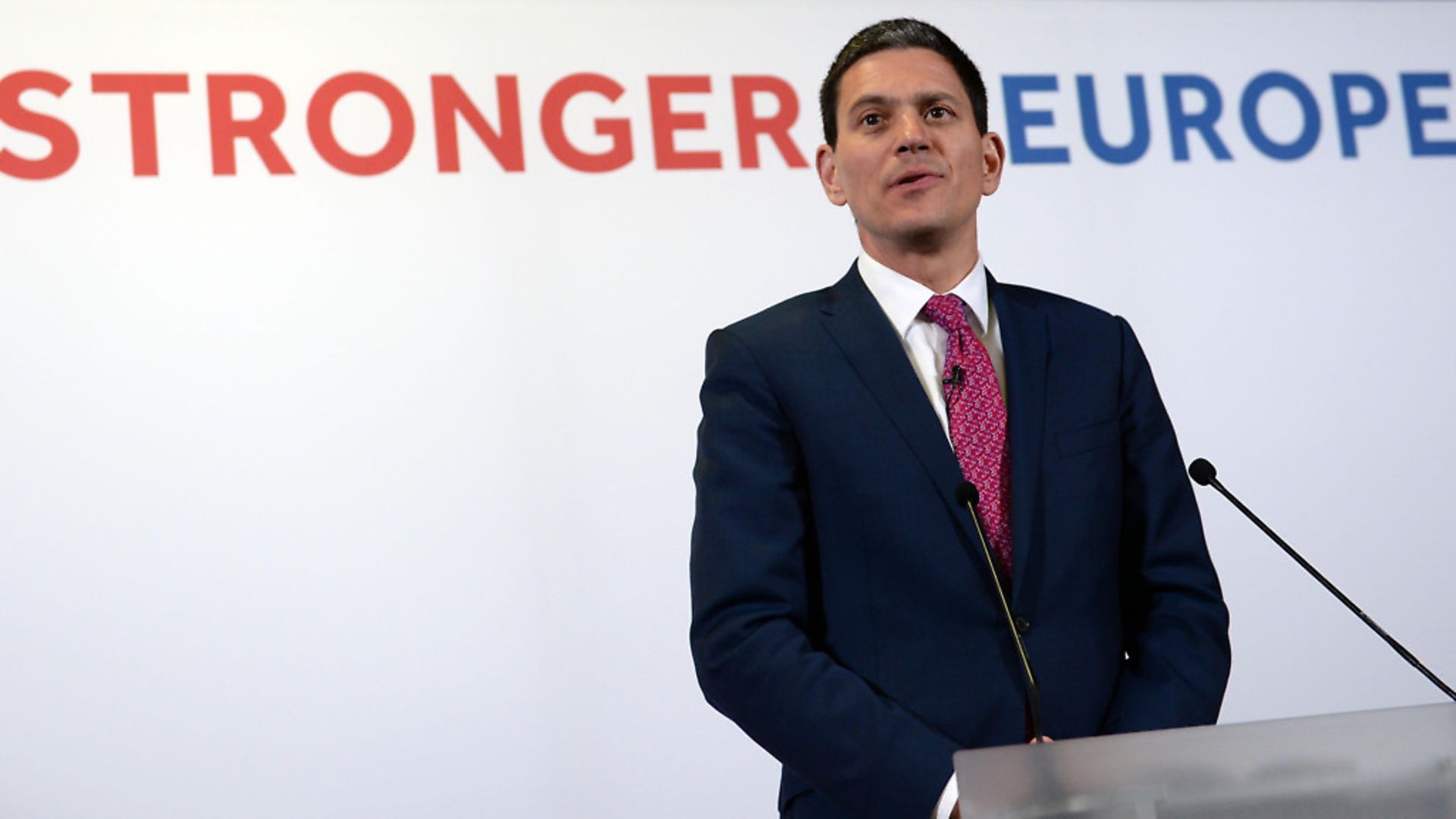
Former Labour heavyweight David Miliband has joined a cross-party bid to take on the Brexiteers.
Miliband, who quit as an MP after losing the Labour leadership to his brother Ed in 2010, will share a platform with Tory ex-education secretary Nicky Morgan and Liberal Democrat former deputy PM Sir Nick Clegg to push for a softer withdrawal from the EU.
Announcing the plan trio said Britain was being ‘held to ransom’ by hardline Brexiteers.
‘Less than six months before the deadline for concluding the terms of our departure, hard- Brexit demands are holding the country’s negotiating position to ransom,’ the trio told the Mail on Sunday.
‘A hard Brexit won’t create global Britain. It is merely a path to a fantasy island of our own where we will have reduced access to our largest markets and a diminished standing in the world.’
They insisted they were concerned about the economic impact of withdrawal, stating: ‘Even a comprehensive free trade agreement with the EU predicted the UK will see growth drop by 5% over the next 15 years compared with current forecasts, as a result of additional bureaucratic border checks.
‘The ensuing economic pain will be felt in every part of the country. This is not Project Fear; it is project reality based on the government’s own analysis.’
Calling on parliament to change Brexit legislation, they wrote: ‘Over the coming months, MPs will have the chance to table amendments to Bills – and vote for those amendments – which can prevent the country from suffering the long-term damage that a hard Brexit will cause.
‘Parliamentarians who champion the hardest of Brexits will stubbornly resist any such amendments, and the pro-Brexit press will angrily protest, but what is the role of MPs if not to improve and protect the lives of their constituents?’
Meanwhile writing in the Sunday Times the prime minister sought to calm nerves on both sides of her cabinet over Brexit.
Theresa May wrote: ‘You can trust me to deliver. I will not let you down.’
She stressed the UK would be aligned with Brussels on some issues as there had to be ‘compromises’ after withdrawal, adding ‘So, Brexit means that, while we may sometimes choose to take the same approach as the EU, our laws will be made in Westminster, Cardiff, Edinburgh and Belfast, with those laws tried by British judges.’
May has divided the cabinet into two groups to consider the customs options being looked into.
The customs arrangement with the EU, that Boris Johnson dubbed ‘crazy’, would see the UK collecting tariffs on behalf of Brussels.
An alternative option called maximum facilitation, known as ‘Max Fac’, would rely on new technology and trusted trader schemes to get trade to flow smoothly with the EU after Brexit.
Warning: Illegal string offset 'link_id' in /mnt/storage/stage/www/wp-includes/bookmark.php on line 357
Notice: Trying to get property 'link_id' of non-object in /mnt/storage/stage/www/wp-includes/bookmark.php on line 37






